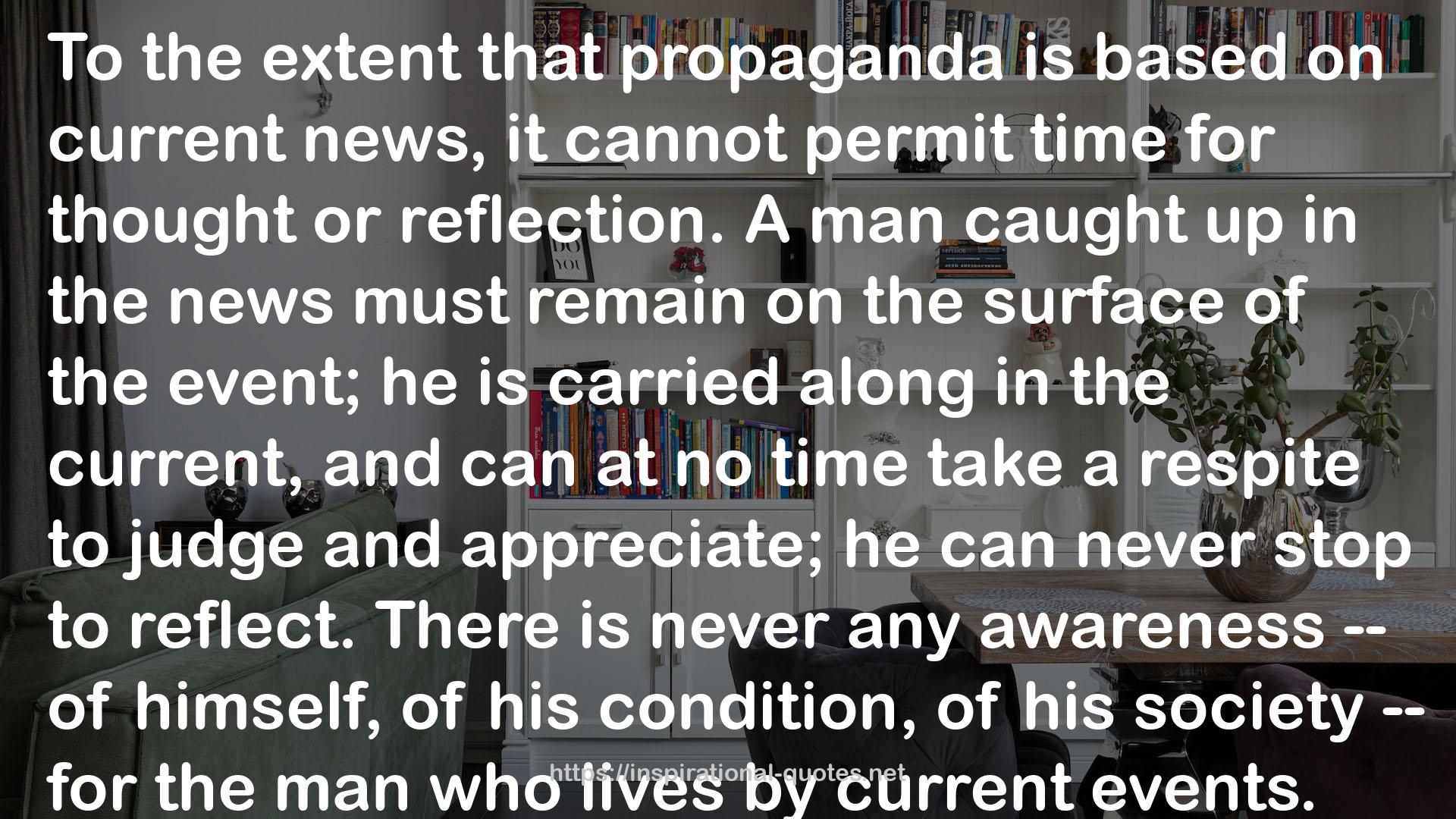" To the extent that propaganda is based on current news, it cannot permit time for thought or reflection. A man caught up in the news must remain on the surface of the event; he is carried along in the current, and can at no time take a respite to judge and appreciate; he can never stop to reflect. There is never any awareness -- of himself, of his condition, of his society -- for the man who lives by current events. Such a man never stops to investigate any one point, any more than he will tie together a series of news events. We already have mentioned man's inability to consider several facts or events simultaneously and to make a synthesis of them in order to face or to oppose them. One thought drives away another; old facts are chased by new ones. Under these conditions there can be no thought. And, in fact, modern man does not think about current problems; he feels them. He reacts, but be does not understand them any more than he takes responsibility for them. He is even less capable of spotting any inconsistency between successive facts; man's capacity to forget is unlimited. This is one of the most important and useful points for the propagandist, who can always be sure that a particular propaganda theme, statement, or event will be forgotten within a few weeks. Moreover, there is a spontaneous defensive reaction in the individual against an excess of information and -- to the extent that he clings (unconsciously) to the unity of his own person -- against inconsistencies. The best defense here is to forget the preceding event. In so doing, man denies his own continuity; to the same extent that he lives on the surface of events and makes today's events his life by obliterating yesterday's news, he refuses to see the contradictions in his own life and condemns himself to a life of successive moments, discontinuous and fragmented.
This situation makes the "current-events man" a ready target for propaganda. Indeed, such a man is highly sensitive to the influence of present-day currents; lacking landmarks, he follows all currents. He is unstable because he runs after what happened today; he relates to the event, and therefore cannot resist any impulse coming from that event. Because he is immersed in current affairs, this man has a psychological weakness that puts him at the mercy of the propagandist. No confrontation ever occurs between the event and the truth; no relationship ever exists between the event and the person. Real information never concerns such a person. What could be more striking, more distressing, more decisive than the splitting of the atom, apart from the bomb itself? And yet this great development is kept in the background, behind the fleeting and spectacular result of some catastrophe or sports event because that is the superficial news the average man wants. Propaganda addresses itself to that man; like him, it can relate only to the most superficial aspect of a spectacular event, which alone can interest man and lead him to make a certain decision or adopt a certain attitude.
But here we must make an important qualification. The news event may be a real fact, existing objectively, or it may be only an item of information, the dissemination of a supposed fact. What makes it news is its dissemination, not its objective reality. "
Image for Quotes

But here we must make an important qualification. The news event may be a real fact, existing objectively, or it may be only an item of information, the dissemination of a supposed fact. What makes it news is its dissemination, not its objective reality." style="width:100%;margin:20px 0;"/>